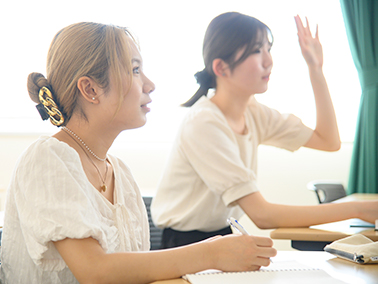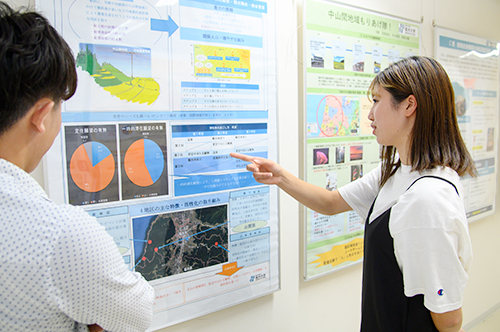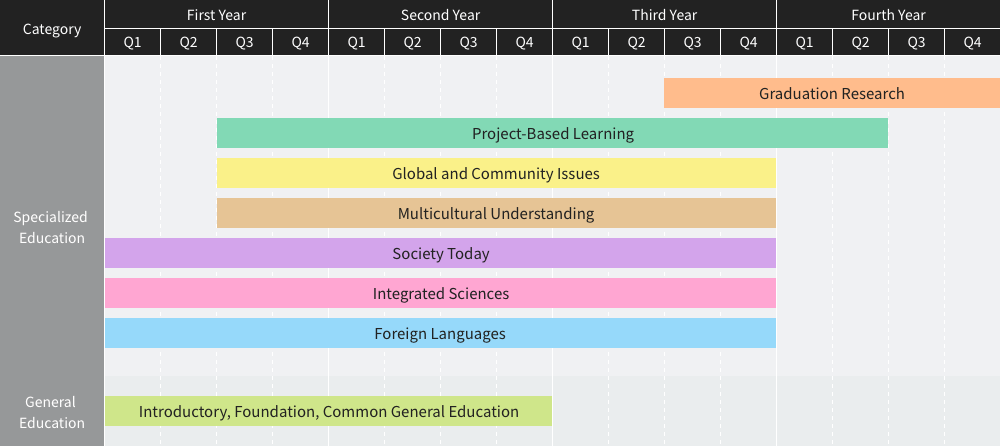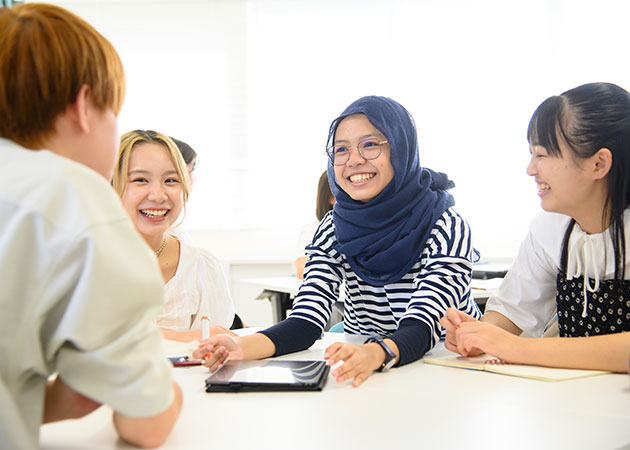Three Keys
Cross-Cultural Understanding
through comprehensive English education and study abroad programs
Students study English intensively as a means of communication. Through study abroad (one or two semesters) and training abroad, students are exposed to different cultures and develop the ability to be global thinkers.

Project-Based Learning
in collaboration with local businesses, local governments, etc.
Students visit companies and local government offices to learn about the challenges they face in the real world, and work with their staff members to investigate and solve problems. This curriculum provides opportunities to learn from real workplaces in the community.

Integrated Study of Humanities and Sciences
to help students develop a scientific mindset
Knowledge of mathematical statistics, such as research and data analysis methods, is also essential to solving problems faced by communities and businesses. Students develop a broad academic knowledge of science and technology, including data science.

Various Paths to Learning
Our learning process is designed to provide students with both common basics and elective courses that can be flexibly selected by each student, rather than predetermined course content, to encourage students to learn independently and proactively, and to achieve an education at an international level.
The common basics consist of foreign language subjects with a focus on English courses, project-based learning subjects in which students learn core subjects on a cumulative basis beginning in their first year, and graduation research subjects taken from the second semester of the third year through the entire fourth year. In addition, students are required to engage in cross-cultural understanding activities such as study abroad and short-term overseas training, and to take a certain number of courses from each of the subject groups Integrated Sciences, Global and Community Issues, Multicultural Understanding, and Society Today.


The flexible selection of courses based on the above basics allows students to decide what they would like to emphasize in their studies. The specialties to be acquired at the School of Global and Community Studies are diverse, reflecting the diverse teaching staff. As a result of this diversity, students select their own specialized courses and other courses to focus on, and receive research guidance from specific academic advisors. In terms of class subjects, studies in the graduation research subjects that students work on prior to graduation in particular serve as the destination for learning about a particular specialty.
Examples of these diverse learning paths are shown on the Course Examples page, and one of the recommended approaches is to focus on courses offered in English to achieve a high level of English proficiency. The English Language Proficiency Honors Recognition Program, newly established for students entering in 2023 or later, recognizes their excellence upon graduation.
Countless Curriculum Options
The problems facing local and international communities are too complex to be solved through a single discipline. Therefore, the School of Global and Community Studies offers multidisciplinary and practical curricula in which students learn to explore and solve problems, while studying a wide range of humanities and social sciences. The school also offers a flexible curriculum structure that ensures independent learning so that students can approach their targets from multiple perspectives, such as by enabling students to take courses according to their interests while learning the basics common to all undergraduate education.







